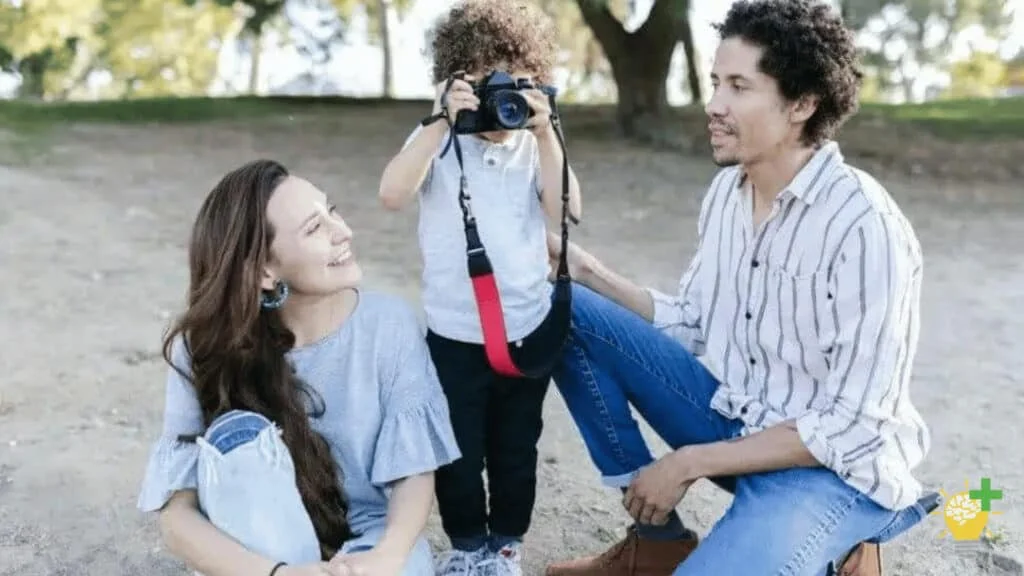Co-parenting situations can be challenging, whether it involves divorced couples or parents who were never married in the first place. Things can get even more complicated when one or both parents decide to move on and start dating again.
Indeed, some step-parents turn out to play pivotal roles in the lives of their step-children. Still, it takes deliberate effort, especially on the part of the adults, to make this work.
That said, setting a few ground rules is important, whether or not you are considering a blended or stepfamily. Doing so will ensure your new partner, kids, and co-parent are on the same page regarding the new parenting arrangement.
Keep reading to learn my top tips on setting healthy co parenting boundaries in a new relationship.
Keeping Everyone Happy

Boundaries in a co parenting situation are meant to keep all parties involved happy. For this reason, consider everyone’s preferences when setting boundaries, starting with yourself.
Whatever you do, make sure you are not sacrificing your happiness. Remember to prioritize yourself because it will be difficult to give your new partner and kids your best if you are unhappy.
Speaking of giving your kids the best, what parenting style do you want for them now that there are three adults involved in the life of your children? You want to protect their physical and psychological well-being, so factor this into the equation when establishing co-parenting boundaries.
Also, think about your new partner and what will be fair to them under the circumstances. Of course, your child is your topmost priority, but no one enjoys being ignored.
Be honest with your partner about putting your children first and establishing boundaries to protect them. But make your new partner understand that this doesn’t mean you love and appreciate them any less.
Lastly, your co-parent should be in the loop, regardless of whether or not they are happy with you moving on. Although you are not responsible for their happiness, you should tell them that someone new is coming into the family, which will definitely change the parenting dynamics.
Tips for Setting Co Parenting Boundaries in a New Relationship

Determine Your Boundaries
First, identify your preferences regarding how involved you want your new partner to be in raising your children.
If you are starting a new romantic relationship, consider the following questions when establishing co-parenting boundaries:
- How much parental role should your new partner play in your child’s life?
- Is it okay for your new partner to give you parenting advice?
- Is it okay for your partner to discipline your kids? If yes, what level of discipline is permitted?
- How will you ensure quality time with your kids alone (without your partner)?
- How much time would be “healthy” to spend with your partner away from your kids?
- Should your children spend time alone with your new partner?
While some changes might be in order, remember to set boundaries with your new romantic partner that won’t expressly violate the parenting preferences already established with your co-parent.
Tell Your Children About the New Family Arrangement
Next, talk to your kids about what you plan to do. Older kids may not have difficulty understanding why you need to move on with your life (even if they are resistant) but put it in a language that younger children will easily understand.
It is important to do this before introducing your new partner to your kids.
If your kids are old enough to express their wishes, ask them what they expect from the new family relationship and try to consider those wishes when setting boundaries.
The well-being of your children is your foremost priority, so be sensitive to their needs and ensure that no one (you, your new partner, and your co-parent) overstep those boundaries.
Talk to Your Co-Parent About Your New Partner
Your co-parent may not be happy to hear it, but it is important to talk to them about bringing a new person into your parenting arrangement before broaching the subject of boundaries.
If there is no specific court order to the contrary, the other parent should have a say in the upbringing of the children. For this reason, discuss and address any concerns on how a new partner will affect the parenting dynamics.
Consider talking about the following:
- Talk about routines and household rules that will likely change.
- Decide who should (or should not) be present at school plays, recitals, graduations, and other special events.
- Agree on who should discipline the children and what level of discipline is allowed.
- Discuss the level of support to expect from your co-parent now that there is another adult involved.
- Discuss any household responsibilities the new partner should have.
- Talk about the impact of the new parenting arrangement on your children’s daily life.
This is also a good time to talk about contact between your co-parent and your new partner. Discuss how their interaction will be handled and set clear rules about your partner being present during drop-offs and pick-ups.
Maintaining Healthy Boundaries for Everyone

Establishing boundaries is only half of the work; you must ensure everyone in the co-parenting arrangement stick to those boundaries.
Consider the following recommendations for maintaining boundaries when you have a new romantic partner in your life while in a co-parenting relationship.
Listen to Your Kids
Pay attention when your children raise concerns about your new partner’s behavior. While kids will likely put up some resistance during this transitional phase, it is important not to ignore their request for boundaries.
Take them seriously if they complain about something your partner did or said. Reassure them of your total love and support, and tell them your plans for making positive changes.
Whatever you do, remember to always protect your children’s physical and mental health and well-being.
Be Real With Your New Partner About Ongoing Communication With Your Co-Parent
Co-parenting with zero communication is not always healthy for children, even in high-conflict separations and conflict. While it is best to reduce contact with an ex as much as possible, minimal communication strictly centered on the kids is advisable.
However, it is important to be upfront with your new partner about being in touch with the other parent. Keep your partner in the loop and manage their expectations about your communication schedule.
Do you communicate through a co parenting app, text, phone call, or email? How often do you communicate with each other? Be honest with them about your mode and frequency of parenting communication.
Here’s one important detail to remember.
Not all relationships end badly. In fact, some divorced couples stay friends or at least get along well.
If things are friendly between you and the other parent, it is usually best to give your new partner a heads-up. This way, they won’t read meaning into your parenting communication.
Respect Your Children’s Wishes
It’s easy to walk away from a relationship and completely end the chapter if kids are not involved. But it is an entirely different ball game when kids are thrown into the mix.
Understand that your children may not be particularly delighted about your new relationship. This is especially true if they are fond of the other parent.
Don’t force your kids to like or spend time with your new partner if they don’t want to. These things usually take time, so allow the process to happen naturally. Also, realize that older kids may never come around to accept your new partner, so be prepared for that possibility.
Respect Personal Boundaries During Children’s Activities
Take steps to prevent conflicts if your co-parent and new partner attend your children’s activities (like school events) at the same time.
Your new partner may have to reconsider showing up for such activities if they can’t stand your co-parent (unless a court expressly prohibits the co-parent from visiting).
Remember, it is not necessary for the other parent and your new partner to like each other (even if you are friendly with your ex), so don’t try to make them friends or force them to interact.
Co-Parenting While in a New Relationship Doesn’t Have to Be Difficult
While it is not usually easy to start a new romantic relationship when you have kids, raising well-rounded children in such situations doesn’t have to be difficult.
Maintaining co parenting boundaries in a new relationship will help your kids thrive and enjoy everything that makes families happy. You can have an enjoyable family, whether or not you are particularly friendly with the other parent or ex-spouse.
The most important thing is getting clear on expectations and ensuring everyone understands their limits.
That said, consider this final piece of advice if you are starting a new relationship.
Only introduce your partner to your kids when you are fully committed to this new person. This way, you won’t expose your children to someone you are unsure of and risk messing up their view of romantic relationships.
With patience, communication, and healthy boundaries, a co parenting relationship while in a new relationship can be hugely successful.




